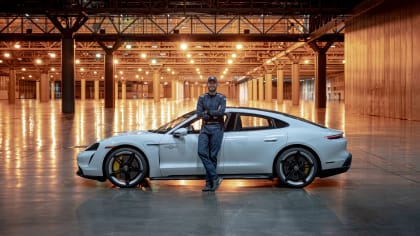5 Game-Changing Benefits of Owning a Used Car

Why are we even considering a new car?
Unlock the game-changing benefits of owning a used car, from reduced insurance to lower financing costs. Get practical tips for a successful used car purchase.
By The Editors
Sat, Jan 18, 2025 08:59 PM PST
Featured Photo by Arvid Skywalker.
Owning a used car can be a game-changer for many reasons. From financial savings to environmental benefits, there are numerous advantages to choosing a preowned vehicle. This article will explore five key benefits of owning a used car and provide tips to help you make an informed decision.
1. Significant Cost Savings
Lower Purchase Price
One of the most compelling benefits of owning a used car is the lower purchase price. New cars depreciate quickly, losing their value within the first few years of ownership. By purchasing a used car, you avoid this initial depreciation and can get more value for your money.
Reduced Insurance Costs
Insurance premiums for used cars are generally lower as the cost to replace the vehicle is significantly less in case of an accident. Lower insurance costs can lead to substantial savings over time.
Lower Registration Fees
In some states, registering a vehicle is based on its value and model year. As a result, registration fees for used cars are typically lower than those for new cars. This can be a great way to save money when buying a used car, as you have to register your car, which is often a forgotten expense.
2. More Vehicle for Your Money
Access to Higher-End Models
When you buy a used car, you can often afford a higher-end model with more features than you could if you were buying the same car new. As cars improve over time so, some of the features are in older models. This means you can enjoy luxury features, better performance, and more advanced technology without breaking the bank.
Proven Reliability
A lot of used cars come with a strong track record for reliability. Researching the make and model helps you identify vehicles that are renowned for their reliability and long-lasting performance. Additionally, online reviews and reliability ratings can provide valuable insights into the performance of specific cars over time.
3. Environmental Benefits
Reduced Demand for New Vehicles
Choosing a used car is a great way to make an eco-friendly decision. Producing new cars requires considerable energy and resources, which can negatively impact the environment. Selecting a used car helps decrease the demand for new vehicles and lowers your carbon footprint.
Lower Emissions
Older cars may have lower emissions compared to newer models, especially if they have been well maintained. By keeping a used car on the road, you can help reduce the environmental impact associated with manufacturing and disposing of vehicles.
4. Slower Depreciation
Value Retention
Pre-owned cars experience slower depreciation than new cars. Unlike new cars, which lose a significant amount of value in their early years, used cars have already gone through this depreciation phase. This means that the value of a used car will decrease more slowly over time, allowing you to retain more of your investment.
Better Resale Value
Because used cars depreciate more slowly, they often have a better resale value compared to new cars. If you decide to sell your used car in the future, you are likely to get a higher percentage of your initial investment back.
5. Lower Financing Costs
Smaller Loan Amounts
Financing a used car typically involves smaller loan amounts, which allows you to have a smaller monthly payment compared to financing a new car. Additionally, shorter loan terms can help you pay off your car faster and reduce the total cost of ownership.
Flexible Financing Options
Many lenders offer flexible financing options for used cars, including competitive interest rates and terms. By shopping around and comparing offers from different lenders, you can find a financing option that fits your budget and needs.
Tips for a Smart Used Car Purchase
Set a Budget
Before looking for a used car, determine your monthly budget. Your budget should include not only the purchase price but also additional costs such as insurance, registration, maintenance, and potential repairs. Setting a clear budget will help you refine your choices and prevent overspending.
Research Thoroughly
Take the time to research different makes and models, as well as the year and condition of the car. Choose reputable brands that are known for their long-lasting performance and minimal maintenance costs. Online reviews, consumer reports, and reliability ratings can provide valuable insights into the best options available.
Check Vehicle History Reports
Once you have a few potential cars in mind, obtain a vehicle history report for each one. Services like Carfax or AutoCheck can provide information about previous ownership, accident history, and any reported maintenance issues. This step is crucial to avoid cars with hidden problems.
Inspect the Car Thoroughly
It's important to have the car inspected to verify it’s in proper condition. If you're not a car expert, you should consider hiring a professional mechanic to do it for you.
Take a Test Drive
Don’t buy a used car unless you’ve taken it for a test drive. Pay close attention to the car's handling, any odd sounds, and the smoothness of the ride. Check the brakes, acceleration, and all of the car's features to confirm they’re functioning properly.
Negotiate the Price
Negotiating the price with the seller is always an option. Use the details from your research and vehicle history reports to back up your offer.
Review the Paperwork
Take time to carefully examine all paperwork before finalizing your purchase. Ensure the title is clear and there are no liens associated with the vehicle you want to purchase. Verify that the VIN on the car matches the one on the title and other documents. To avoid any future legal issues, it is important to have verified and have all the proper paperwork.
Consider Financing Options
Never take the first financing offer; compare rates online and from local banks and the dealer. By comparing offers from banks, credit unions, and online lenders, you can get yourself a better overall rate. Pre-approval can give you a better idea of your budget and strengthen your negotiating position with the seller.
Get an Extended Warranty
Purchasing an extended warranty is ideal since you may not know everything wrong with the vehicle as it is used. While it may be an additional cost, an extended warranty can protect you from unexpected repair expenses and provide coverage beyond the manufacturer's warranty.
Finalize the Purchase
Once you've completed all the previous steps and are satisfied with the car, it's time to finalize the purchase. Ensure all paperwork is in order, make the payment, and transfer the title. Don't forget to register the car in your name and update your insurance policy.
Conclusion
Owning a used car offers numerous game-changing benefits, from significant cost savings to environmental advantages. By following the tips outlined in this article, you can make an informed decision and enjoy the many perks of owning a used car. Remember, thorough research, careful inspection, and smart negotiation are key to a successful and hassle-free used car purchase. Happy car hunting!





